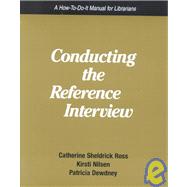| Preface | vii | ||||
| Acknowledgments | xiii | ||||
|
1 | (42) | |||
|
1 | (4) | |||
|
5 | (7) | |||
|
12 | (5) | |||
|
17 | (12) | |||
|
22 | (3) | |||
|
25 | (4) | |||
|
29 | (5) | |||
|
29 | (1) | |||
|
30 | (4) | |||
|
34 | (1) | |||
|
35 | (2) | |||
|
37 | (6) | |||
|
37 | (1) | |||
|
38 | (1) | |||
|
38 | (1) | |||
|
39 | (2) | |||
|
41 | (1) | |||
|
41 | (1) | |||
|
42 | (1) | |||
|
43 | (24) | |||
|
43 | (4) | |||
|
47 | (3) | |||
|
50 | (1) | |||
|
51 | (13) | |||
|
52 | (1) | |||
|
53 | (5) | |||
|
58 | (3) | |||
|
61 | (1) | |||
|
62 | (2) | |||
|
64 | (3) | |||
|
64 | (1) | |||
|
64 | (1) | |||
|
65 | (1) | |||
|
65 | (1) | |||
|
66 | (1) | |||
|
67 | (42) | |||
|
67 | (16) | |||
|
69 | (2) | |||
|
71 | (1) | |||
|
72 | (3) | |||
|
75 | (4) | |||
|
79 | (4) | |||
|
83 | (21) | |||
|
83 | (8) | |||
|
91 | (2) | |||
|
93 | (9) | |||
|
102 | (1) | |||
|
103 | (1) | |||
|
104 | (5) | |||
|
104 | (1) | |||
|
105 | (1) | |||
|
106 | (2) | |||
|
108 | (1) | |||
|
108 | (1) | |||
|
108 | (1) | |||
|
109 | (16) | |||
|
109 | (11) | |||
|
111 | (2) | |||
|
113 | (5) | |||
|
118 | (2) | |||
|
120 | (3) | |||
|
121 | (2) | |||
|
123 | (2) | |||
|
123 | (1) | |||
|
123 | (1) | |||
|
124 | (1) | |||
|
125 | (60) | |||
|
125 | (1) | |||
|
126 | (10) | |||
|
127 | (7) | |||
|
134 | (1) | |||
|
135 | (1) | |||
|
136 | (6) | |||
|
137 | (5) | |||
|
142 | (10) | |||
|
142 | (4) | |||
|
146 | (1) | |||
|
147 | (3) | |||
|
150 | (2) | |||
|
152 | (5) | |||
|
153 | (1) | |||
|
154 | (1) | |||
|
155 | (2) | |||
|
157 | (5) | |||
|
162 | (13) | |||
|
164 | (2) | |||
|
166 | (9) | |||
|
175 | (10) | |||
|
175 | (1) | |||
|
176 | (1) | |||
|
176 | (1) | |||
|
177 | (2) | |||
|
179 | (1) | |||
|
180 | (1) | |||
|
180 | (5) | |||
|
185 | (34) | |||
|
185 | (2) | |||
|
187 | (22) | |||
|
192 | (4) | |||
|
196 | (3) | |||
|
199 | (10) | |||
|
209 | (4) | |||
|
211 | (2) | |||
|
213 | (6) | |||
|
213 | (1) | |||
|
213 | (6) | |||
|
219 | (14) | |||
|
219 | (1) | |||
|
220 | (4) | |||
|
220 | (2) | |||
|
222 | (2) | |||
|
224 | (7) | |||
|
225 | (1) | |||
|
225 | (5) | |||
|
230 | (1) | |||
|
231 | (2) | |||
|
231 | (1) | |||
|
231 | (2) | |||
| Index | 233 | (9) | |||
| About the Authors | 242 |








